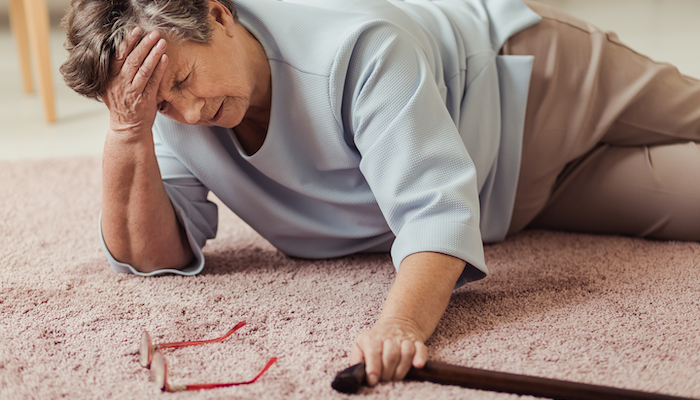Each year, one out of four older adults will experience a fall, making falls the leading cause of injury for elders. The most severe consequences include injuries that can be life changing: a traumatic brain injury or broken hip. These can lead to the need to move to a setting with more assistance.
Your aging loved one is considered at high risk for falling if they have fallen twice in the past year, has balance or gait problems, or has just had a severe fall.
Regardless of their history, ask your family member’s doctor to do a “fall risk assessment.” This includes a review of
- underlying medical conditions. Many chronic diseases, such as diabetes or heart disease, can affect balance and mobility.
- the home environment. The doctor can write an order for an occupational therapist or other trained professional to do a home assessment.
- medication use. Some types of drugs, and daily use of four or more prescription drugs, increase the risk for falling.
Encourage your relative to get more exercise. Exercise has been shown to reduce fall risk. That said, your loved one may also hold back from exercising precisely because they are afraid of falling. Check with the doctor to see if they should start exercising by working with a physical therapist. Otherwise, recommended activities include
- balance exercises three times a week. For instance, walking backwards, walking sideways, and standing from a sitting position.
- strength-training exercise twice a week. Usually this involves lifting weights of some kind. Think in terms of exercising legs, back, chest, and arms. A lot of this can be done from a chair, if they are anxious about falls.
- aerobic exercise. Moderate-intensity exercise causes the heart and lungs to work harder. This is important for increasing stamina. It also helps build muscle tone. Although the recommendation of 150 minutes per week can seem like a lot, it can be spread out in ten-minute intervals two or three times a day.
Are you concerned about your loved one falling?
As the San Francisco experts in family caregiving, we understand how much you want to keep your relative safe. But you can’t do it alone. At Compassionate Community Care, we work with doctors and other professionals such as occupational therapists to help minimize risk. Give us a call at (415) 921-5038 to learn more.

